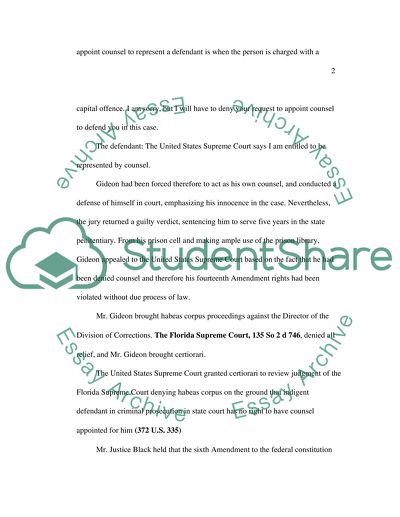Cite this document
(“Gideon v. Wainwright Case Study Example | Topics and Well Written Essays - 3000 words”, n.d.)
Retrieved from https://studentshare.org/law/1516775-gideon-v-wainwright
Retrieved from https://studentshare.org/law/1516775-gideon-v-wainwright
(Gideon V. Wainwright Case Study Example | Topics and Well Written Essays - 3000 Words)
https://studentshare.org/law/1516775-gideon-v-wainwright.
https://studentshare.org/law/1516775-gideon-v-wainwright.
“Gideon V. Wainwright Case Study Example | Topics and Well Written Essays - 3000 Words”, n.d. https://studentshare.org/law/1516775-gideon-v-wainwright.


